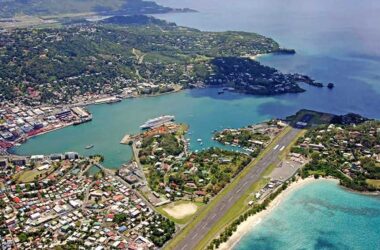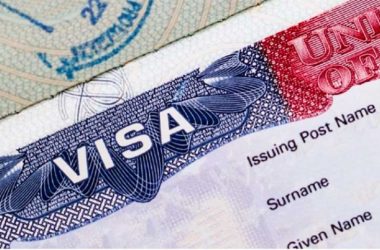
The global COVID numbers are impossible to keep-up with: deaths in the millions, vaccine needs in the billions and long-term effects already adding-up to trillions of US dollars.
More people today therefore want to see governments do more, more quickly, to show effective signs the war on COVID can be won and showing support for enforcement of protocols.
More people everywhere today know someone who died or lost someone from COVID (if not within their own family circle) and more can see it’s overwhelmingly unvaccinated persons testing positive, being hospitalized and dying and more accepted today than last year that only significantly increasing vaccinations can ensure the pandemic can begin to be effectively tackled.
The majority here are still not vaccinated (like everywhere else in the developing world) and one or two vaccinated persons (out of every 100,000) tested positive and displayed mild COVID symptoms last week.
But more today, at home and abroad, can see with the scientific argument that while rare side-effects like blood clots and ‘breakthrough’ cases may occur, none is anywhere near to the danger of contracting the virus.
The new government’s approach is clearly different to that of its predecessors, but some elements from the past continue to haunt the present and the future.
The Prime Minister’s pledge to continue to ‘Follow the Science’ and be guided by ‘The Numbers’ was initially ridiculed by his usual critics in the media.
But he did get editorial support from The VOICE newspaper, endorsement from most in the medical fraternity – and his entire Cabinet publicly pledged to not only be guided by the science but to also go into their communities to (basically) help people choose between science and stupidity.
The government’s parliamentary amendments to rename the former COVID ‘Command Center’ and ensure it’s led by a Medical Practitioner (instead of an elected politician) and substitution of police arrests, detention and charges for protocol violations with ticketing offenses, have also been largely welcomed.
But more people are noticing too, that never mind everything, the virus continues to change life as we knew it.
Politicization of the pandemic, for example, has also become an unfortunate factor of Caribbean life today.
The near-killing of the Prime Minister of St. Vincent & The Grenadines Dr Ralph Gonsalves by an angry anti-vaccination protester outside parliament while MPs discussed related proposed legislation – and on the same day the new Saint Lucia Cabinet was being installed in parliament in Castries — clearly shocked Saint Lucia’s new Prime Minister and his regional counterparts into awe.
In the days that followed, the OECS governments engaged in previously-arranged discussion seeking legal advice on mandating vaccines, but following the bloody attack on the Vincentian PM, heads of governments went heads-over-heels to offer early assurances their governments have no such plans.
However, everything happening everywhere else before and since then suggests all governments will eventually have to face the choice of mandating (or requiring) vaccinations if the pandemic is ever to be brought under control.
Everywhere, the battle is to stem the tide and slow the flow before even thinking of reversing the trend, so Saint Lucia will have to do more public education to reduce the number of violations recorded by the police over the two first ‘Lockdown Sundays’.
People are no longer simply sitting on their hands, with many more today actually offering valuable suggestions – and asking real questions.
Many say banning alcohol at bars and restaurants while allowing supermarket sales has helped encourage temptations to evade curfews, as many feel the Saturday curfew should be reviewed to allow time for those working to shop; and security guards at government schools whose shifts end when curfews start want arrangements to be transported home.
Experiences of the past six weeks have also made it pellucidly-clear that citizens have always been better able to distinguish between the Science they see (from the COVID effects on the unvaccinated) and the Stupidity they hear (from those effectively encouraging suicide by discouraging vaccination).
Nothing happens before it’s time and everything good happens at the right time — and at this time people and governments everywhere are taking steps to more than just encourage vaccination, most showing readiness to go a few extra miles to ensure the unvaccinated understand they are both risks to themselves and family, as well as at risk to the community – and thus the health of the nation.
More elected governments everywhere are also accepting that their solemn duty and responsibility to electors has always been — and forever continues to be — to care for the health of not just the majority who voted for them or the minority who didn’t, but for all citizens – including the unvaccinated.
Philosophically, therefore, it’s just a matter of time before these global scientific and practical realities are brought to bear here and across the region, as the COVID variants continue flying home with Delta, to further roost the pandemic.
The signs are also crystal-clear, though, that not at all CARICOM leaders have been shocked into political over-sensitivity or senselessness by the politicization of the pandemic by weak opposition parties.
Antigua & Barbuda Prime Minister Gaston Brown (also CARICOM’s current Chairman) last week announced his government has decided persons holding Public Service jobs in the twin-island nation should be vaccinated – and those who refuse to, without reason, shouldn’t expect to get paid or keep their jobs indefinitely.
And just before him, Trinidad & Tobago’s PM Dr Keith Rowley let it be known that his administration will intervene, to ensure children are vaccinated and encourage parents to trust vaccines today like they always did with all that preceded COVID.
In the USA, President Biden also announced last week that all Federal employees and contractors must be vaccinated; and Canada has for over-a-month been mandating vaccinations wherever possible federally and provincially, including banning provincial parliamentarians from attending meetings unless vaccinated.
Comforted by their high levels of vaccination, European nations continue sending mixed messages, but there too the trend towards mandating is proceeding apace, even more silently.
Last Thursday France became the first European country to ban entry by unvaccinated Americans, removing the US from its ‘green list’ of safe nations and requiring American passengers to follow the lines like everyone else.
And yesterday the UK indicated that as of next week 12-to-15 year-old students will be offered free vaccinations at school (with or without parental consent) and persons over 50 will get ‘booster jabs’ – while Downing Street hold in reserve possible introduction of Vaccine Passports to enter bars and restaurants, salons, barber shops and for overnight stays at hotels.
Against this background, regions are increasing collaboration and cooperation while building ties with complementary entities elsewhere.
The September 7 African Union-CARICOM Summit concluded with commitments to share experiences and create new cooperation platforms to overcome common COVID challenges.
An Independent Panel on Pandemic Preparedness and Response (IPPPR) — appointed to advise the United Nations (UN) and the WHO — also recommended in May that efforts to reverse the COVID toll, if to succeed, must be wholesome, global and multinational, with future pandemics in mind.
Every elected government and ruling party everywhere will have to weigh the weight of the choice between requiring vaccinations and the political implications of failing to act when the time called for action, in this the biggest battle governments have ever had to fight between elections in the 21st Century.
In the case of Saint Lucia and the rest of CARICOM, it’s just a matter of time…
And with the point made (that people have always been better able to distinguish between Science and Stupidity once given the facts and allowed to freely make their minds up), it’s good time and place to end this 10-part series and move on to other matters of equal (and no less) import and interest to all, to be chronicled by a chronic Caribbean chronicler.













